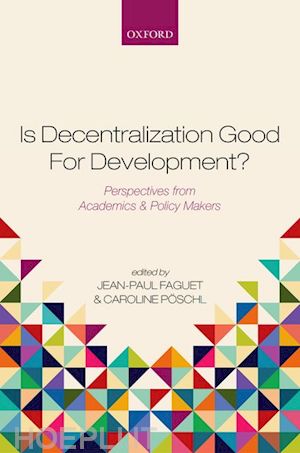Is decentralisation good for development? This book offers insights and lessons that help us understand when the answer is 'Yes', and when it is No'. It shows us how decentralisation can be designed to drive development forward, and focuses attention on how institutional incentives can be created for governments to improve public sector performance and strengthen economies in ways that enhance citizen well-being. It also draws attention to the political motives behind decentralisation reforms and how these shape the institutions that result. This book brings together academics working at the frontier of research on decentralization with policymakers who have implemented reform at the highest levels of government and international organizations. Its purpose is to marry policymakers' detailed knowledge and insights about real reform processes with academics' conceptual clarity and analytical rigor. This synthesis naturally shifts the analysis towards deeper questions of decentralization, stability, and the strength of the state. These are explored in Part 1, with deep studies of the effects of reform on state capacity, political and fiscal stability, and democratic inclusiveness in Bolivia, Pakistan, India, and Latin America more broadly. These complex questions - crucially important to policymakers but difficult to address with statistics - yield before a multipronged attack of quantitative and qualitative evidence combined with deep practitioner insight. How should reformers design decentralisation? Part 2 examines these issues with evidence from four decades of reform in developing and developed countries. What happens after reform is implemented? Decentralization and local service provision turns to decentralization's effects on health and education services, anti-poverty programs with original evidence from 12 countries across Africa, Asia, and Latin America.











